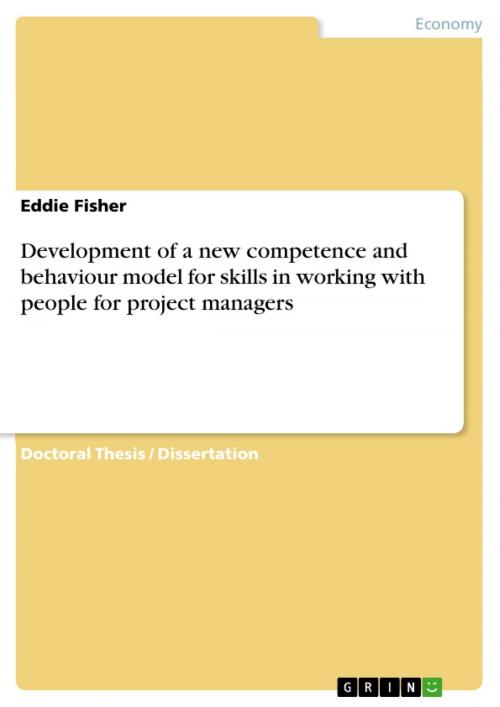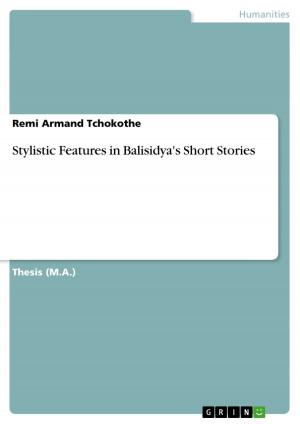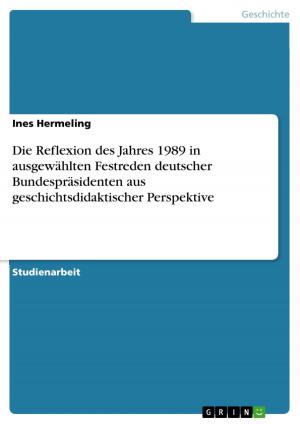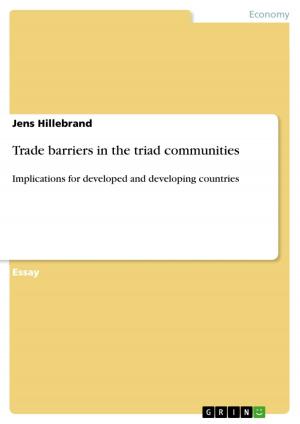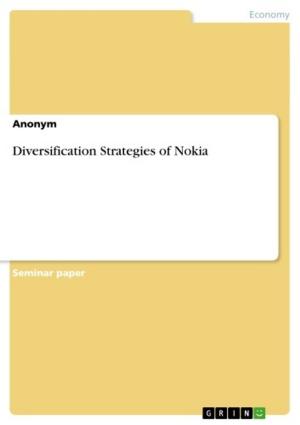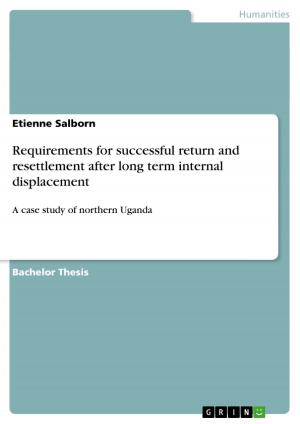Development of a new competence and behaviour model for skills in working with people for project managers
Business & Finance, Management & Leadership, Management| Author: | Eddie Fisher | ISBN: | 9783638059183 |
| Publisher: | GRIN Publishing | Publication: | June 10, 2008 |
| Imprint: | GRIN Publishing | Language: | English |
| Author: | Eddie Fisher |
| ISBN: | 9783638059183 |
| Publisher: | GRIN Publishing |
| Publication: | June 10, 2008 |
| Imprint: | GRIN Publishing |
| Language: | English |
Doctoral Thesis / Dissertation from the year 2006 in the subject Business economics - Business Management, Corporate Governance, The Open University (Open University, Milton Keynes, United Kingdom), 235 entries in the bibliography, language: English, abstract: The growing penetration of projects as a way of organising work in many organisations has created a shortcoming between what companies expect in terms of project delivery and the way in which their project managers execute projects. The constantly changing demands have created a need for project managers to manage the people in their projects more effectively to meet these expectations. A review of the general and project management literature has revealed that a shortcoming exists and the nature of this shortcoming. What used to be appropriate skills in working with people are no longer adequate now that working practices are changing in response to increases in pressures to achieve better results. This thesis has developed a competence and behaviour model for skills in working with people for project managers that provides the means to fill the shortcoming. The exploration to develop this model has taken place mainly through interviews with project managers from the community of practice in United Kingdom organisations, supplemented by the participatory research observations of the researcher as a practising project management professional. The research focus was on the impact humans make in the activities of project management, within a socially constructed world. The research considered competences and behaviours of skills in working with people for project managers and, therefore, had to deal with the meaning that people put on their observations. As a consequence, their descriptions have been collected, analysed and interpreted by applying a constructivist interpretivist approach within a phenomenological research paradigm. The results from this study are of interest to both academics and the community of practice in project management. The new competence and behaviour model of skills in working with people for project managers can be incorporated in future editions of bodies of knowledge such as those promoted by the PMI, APM or IPMA, and other people competence models in the area of general management.
Doctoral Thesis / Dissertation from the year 2006 in the subject Business economics - Business Management, Corporate Governance, The Open University (Open University, Milton Keynes, United Kingdom), 235 entries in the bibliography, language: English, abstract: The growing penetration of projects as a way of organising work in many organisations has created a shortcoming between what companies expect in terms of project delivery and the way in which their project managers execute projects. The constantly changing demands have created a need for project managers to manage the people in their projects more effectively to meet these expectations. A review of the general and project management literature has revealed that a shortcoming exists and the nature of this shortcoming. What used to be appropriate skills in working with people are no longer adequate now that working practices are changing in response to increases in pressures to achieve better results. This thesis has developed a competence and behaviour model for skills in working with people for project managers that provides the means to fill the shortcoming. The exploration to develop this model has taken place mainly through interviews with project managers from the community of practice in United Kingdom organisations, supplemented by the participatory research observations of the researcher as a practising project management professional. The research focus was on the impact humans make in the activities of project management, within a socially constructed world. The research considered competences and behaviours of skills in working with people for project managers and, therefore, had to deal with the meaning that people put on their observations. As a consequence, their descriptions have been collected, analysed and interpreted by applying a constructivist interpretivist approach within a phenomenological research paradigm. The results from this study are of interest to both academics and the community of practice in project management. The new competence and behaviour model of skills in working with people for project managers can be incorporated in future editions of bodies of knowledge such as those promoted by the PMI, APM or IPMA, and other people competence models in the area of general management.
